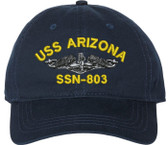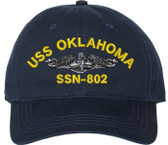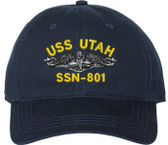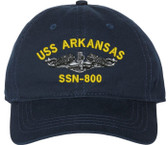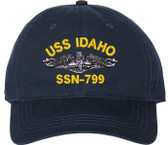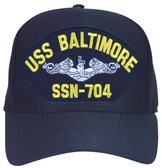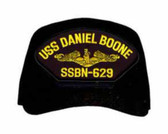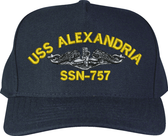 Loading... Please wait...
Loading... Please wait...- Home
- Sea Stories
- The Qualification of a Submariner by Glenn Roesener
Categories
The Qualification of a Submariner by Glenn Roesener
The Qualification of a Submariner by Glenn Roesener
The last evening of our patrol started the moment I got off watch. My usual routine was to leave the Sonar shack, get something to snack and some coffee, and head for a quiet corner to study my notes, and from which to wander the boat, putting my hands on valves, breakers, panels, emergency lockers – anything to strengthen my memory of the working systems of the boat. For nine long months I had devoted every spare moment to learning every feature of this old boat, one of the S-girls, the USS Shark. As a part of a submarine crew, I had to be able to respond to any emergency that may crop up where I stood at any given moment. Should a fire start, or a pipe burst, or any of the intricate survival, power, or weapons systems go awry, there was not always time to assemble systems experts to discuss the problem. Action had to be taken immediately, and the person standing next to the emergency had to be able to respond intelligently. That person's knowledge could be the only chance the rest of the crew had. In Russian Roulette, the empty chamber is the one that wins. In a submarine emergency, the empty head standing next to it is not just death for one person, but for a hundred. The last thing anyone wants at that moment is to be the guy that can only stand there in fear, with no clue what to do. To wear the coveted “Dolphins”, the insignia of the qualified submariner, is to bear the trust of a hundred men. Names were to be had for those who hadn't finished the qualification process yet: Nubs, FLOB's (Free-loading Oxygen Breathers), Non-quals. If you were behind schedule in your qualification, you were a Dink (Delinquent) and hounded mercilessly. A submarine crew has as much mercy for for slackers as the 400 feet of sea above us had for our tiny tube of steel. Any weakness would be crushed.
Tonight, however, my schedule was different. I had finished my qualification card, a series of interviews and signatures that I had amassed in the nine months since my arrival on the boat, interrogations given by qualified crew-members considered experts on their respective systems. I had been grilled about the air systems, the hydraulics systems, the electrical, the emergency equipment, the reactor, the propulsion, weapons, small arms, the waste systems, the atmospheric monitoring and maintenance systems...every aspect of the boat had been put to question to me. I knew about spaces on that old girl that made her blush. Any given interview had taken days to learn, and sometimes hours to finish an interview before a signature was given. I had failed interviews for lack of a single answer, given “lookups”, and another day's studying before return. And I had done this all while also learning my job as a Sonarman, learning the acoustic traits of friend and foe alike, learning how to tease detection of those traits from an array of hydrophone sensors, connected to dozens of cabinets full of electronics, memorizing numbers representing the characteristics of propulsion systems and churning screws of all sorts of water craft, tuning my ear to hear the difference between mechanical and biological noise sources. And I had learned to repair this equipment when it malfunctioned, learned to maintain it on a prescribed schedule to keep it tuned and calibrated. For nine months, I had worked three jobs. But tonight I was going to rest.
I turned over to my relief, briefing him on the happenings of our watch so that he could, from the moment he took the headphones, be on top of any development that may come from the contacts we held. Tonight was a busy night, acoustically, but the traffic topside was all commercial. We approached our surface point, from where we would transit in to port soon. It was expected that we would pull in in the morning, and I planned to catch up on sleep, and be ready for going home to wife and children tomorrow. I took the five steps from the Sonar door and turned, sliding on my hands down the ladder rails and navigating automatically through the twisting path to the crews' mess coffee pot. I had spent much of the last nine months in front of this machine, making and fetching coffee for the sonar watch team as the nub of the division, its most junior man. In under fifteen seconds, I hovered over the pot in a ritual stronger than the call of my rack, drawing in the strong brew's aroma. I was jarred from my reverie by the 1MC announcing circuit crackling to life.
“Station the Maneuvering Watch” came a bland announcement. As sweetly as the anticipation of the luxury of sleep had come, it now departed with the snap of the release of the microphone over the speaker. I turned, and returned to my station in Sonar. A month at sea with endless weapons drills, engineering drills, fire drills, flooding drills, had made the dejection of another lost sleep opportunity almost automatic. I numbly accepted this new schedule, that in another hour we would tie up to the pier, and that I was on duty tonight. There would be no wife and children until later tomorrow.
The lines were thrown over to the pier by the last light of the day, and with brisk efficiency the boat was tied, secured, and the same bland voice finally announced, “Secure the Maneuvering Watch”. I knew the officer that made the announcement. I marveled at his ability to mimic a Being with no soul. I wondered silently if Officers' training included this, or if he was truly a transformed hound from hell. Two-thirds of the crew were already to depart, lurking in various spaces between berthing and Control Room, the path to the outside. The past month's exercises were behind us, and these men were ready to see their loved ones, to breathe fresh air, to stretch in every direction, and to think nothing of the sea for a while. I, on the other hand, as part of the remaining crew on duty, had to spend the night. I picked up my dreams of sleep, dusted them off, and put my plan for sleep back into action, securing the sonar systems and opening the thin, aluminum-framed door once again for my well-worn 80-step path to bed. My Senior Chief stood outside the door, hand on the knob I had just pulled from his grasp. He smiled the smile of a man about to exact revenge for a lifetime of annoyance and tribulation. Moses smiled this smile when he realized that the Israelites, after they passed through the parted sea before them, would be wandering through the desert wearing nothing but sandals.
“Qual board in 20 minutes, Roesener. Make me proud.” And then he disappeared through control, and out the hatch, following the exodus of men dragging sea bags up and to the pier.
The Submarine Qualification Board: This dreaded and coveted interview represents the end of a long list of lesser interviews. A single, big interview, administered by an assembly of four crew-members, including one officer. These shipmates are designated by their reputation for knowledge of the boat. Every board is different, depending on which men are available to serve on the board. The length of the interview can range from a couple hours to several, depending on the proficiency of the candidate's answers, and his attitude. If you're certain of your answers, give quick, pointed, and complete responses, and show a respectful eagerness to take on more questions, they often keep the interview short. If you seem uncertain, they will probe you for your weakness, and exploit it until you fail. Get too cocky, and they will batter you just for the pleasure of it. Like sea pressure, they never stop.
I was already half-asleep, the rocking of the boat on the surface lulling me into a pleasant drowsiness, to which I had already half-surrendered. To come back from this point in the sleep cycle was going to take decisive, dramatic action. I lurched towards the coffee pot.
I spent my twenty minutes alternately blazing my way mentally through bits of anticipated questions, and devising ways of cooling coffee down enough to ingest more than my share of volume in less than my share of time. 4 cups later, I sat in the control room of the submarine, in the swiveled seat of the helmsman, with the hum of 400hz equipment providing background ambiance for four slightly irritated men who had also dreamed of sleep.
By the time the formalities of beginning the interview was over, I was beginning to feel the jittery effects of too much caffeine on too little sleep. The first question, posed by a machinist's mate, was a classic question:
“You are a drop of sea-water. Make the light in your rack light up.”
I had prepared for this one. The question is simple – a nuclear submarine uses a steam turbine to generate it's electricity. The answer, however, requires intimate knowledge of several subsystems. Intake valves, seawater pumps must be named by number and location. Piping needs to be described. The process through the development of steam from nuclear power must be explained both in theoretical detail, and described by location of equipment, safety shut-offs, control panels, etc. Once the generator has been turned, and electricity developed, then electrical systems, busses, breakers, panels, and wires are named by number designation and location until the generated electron has been pushed through the ballast of the small flourescent light inside each bunk, and in particular mine, and then passed through to ground for a complete circuit. I was ready. I opened my mouth, articulated my response at length, and then finally drew a deep breath, slouched back in my chair, still jittery from the coffee, and broke the ice.
“So...is that the best you've got?”
I've had better tactical moments. I sat in front of four men, all of whom were keenly attuned to the fact that we, returning sailors from a month at sea, still sat aboard our boat, unable to go home until the morrow. They had thought of their sleep as a means to while away the remaining time until they could go topside, to the fresh air and greater expanses of the world. I had just provided them with the one thing more appealing to a submariner than sleep. I had provided them a target.
8 pupils dilated slightly and focused on my face. 4 mouths curled wickedly into mischief. Four bodies bestirred themselves, shifting in their seats with the unspoken phrase erupting in unison from each one, “WELL now...”. As one, they all sat up and leaned forward in fresh anticipation.
And so it began. For six hours I sweated through questions regarding every imaginable point between the bow and stern of that submarine, inside and outside the pressure hull, and explored the connections and implications of all of them. I discoursed on procedures, on the history of those procedures, on the fate of the boats from whose history those procedures had arisen. I explained at least three quarters of the theories of modern physics, as they pertained to maintaining a submarine in the sea, providing life-support for it's men, detecting it's enemies and delivering it's weapons. I answered obscure questions, convoluted questions, devious questions designed to generate the dreaded “Lookup”. My bladder filled and drained twice. On each trip to the head, all I could think about was the time I was giving the group to secretly consort and design new torturous conundrums into which to hurl me. I rued my words like I had never rued an act in my life. Oh man, did I rue. A deep and abiding rueing of the day, combined with caffeine overdose rush, is an experience never to be forgotten. I predict that at the end, my own death will be delayed by the time it takes to shudder, once again, as that last memory passes through my expiring mind and sends one last shiver of horripilation through my inert body.
And in the midst of all of it, I was finally asked one question I could not answer. That question remains as fresh in my today as it was that night 27 years ago.
Where, oh where do I recharge an expended PKP fire extinguisher. And yes. I know the answer.

